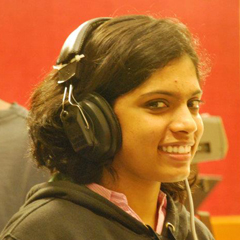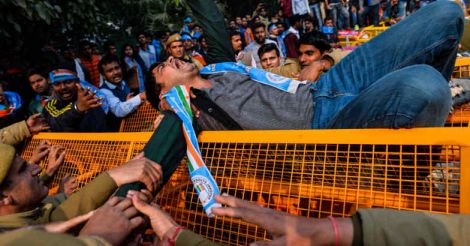At the onset, let me express my heartfelt condolences to the family of Rohith Vemula.
The tragic death of the Ph.D student from the University of Hyderabad has taken me back to my college days when a professor and an expert on India's caste system was addressing the class on his favourite topic – oppression of the Dalits.
No sooner had he begun the discussion, than the class was outraged over some of his remarks on education and how the upper castes never cared about the lower castes.
“The movie Aarakshan,” he began, “is made by a man from a higher caste. The role of the Dalit student was played by a Muslim. So my question is – why did a Hindu not play the role of the Dalit?”
I found the question rather ridiculous. To begin with, the movie starred Amitabh Bachchan, Saif Ali Khan and Deepika Padukone. Irrespective of the role they played, they all were paid loads of money. But what annoyed me most was the manner in which the professor continued to speak of how the system always put down those who hailed from his community.
I distinctly remember how a classmate questioned the reasons behind digging deep into the caste system as far as one's professional life is concerned. “Sir, I don't know my caste. But I am a photographer and I have been very successful. So does my caste determine anything,” asked my classmate. “Son, you must know your caste,” he said tapping the boy's shoulder.
In another incident, a Dalit friend had openly stated that he hated certain religions and began telling me more about the oppression that his community faced. After lending a patient ear to the gentleman for more than 45 minutes, I asked him, “While you expect me to empathise with you, tell me what have you done exclusively for the benefit of your community?” I must admit, I am still waiting for an answer.
Both these anecdotes made me wonder of an alternative that could actually change lives and why many don't get down to it.
Honestly, why is an educated man pondering over the caste system and accusing those of a particular faith over the unfair practices of a Dalit community? Why hasn't he – instead – questioned the manner in which despite reservations, only very few have dared to fight it out and come out with flying colours?
Why haven't those Dalits (including my friend and the professor) considered doing something exclusively for the well-being of their community members? For instance, what prevents them from running higher education institutions that give Dalits a preference over the others? How come popular political leaders from the Dalit community are yet to think of setting up organisations or companies that offer Dalits a chance to pursue a career in content development or even programming?
I certainly do not agree with the treatment the Dalits are being subjected to even today. It is a most unfortunate aspect. But we all know the story of B.R Ambedkar, the architect of our Constitution. Didn't former Supreme Court chief justice K.G Balakrishnan make his mark ? Has the professor heard of the successes of cricketer Vithal Palwankar? What about the life experiences of Kalpana Saroj, CEO of the Kamani Tubes? Or even the life of former Deputy Prime Minister of India Jagjivan Ram? They all had one thing in common: they were Dalits.
The struggle is indeed intense, as this community has been subject to a lot discrimination for several generations. Then again, the more you talk of the unfair ways of life, the more dejected you become. The greatest challenge of all is to be able to rise above the crushing circumstances you were born under.
Maybe there is an alternative that has not been explored much. Charity begins at home. Probably, successful Dalits have to step in to help their community to make a mark.
The question is – when?

























 Student protest after the death of the Dalit student, Rohith Vemula, at HCU. Photo: PTI
Student protest after the death of the Dalit student, Rohith Vemula, at HCU. Photo: PTI
Disclaimer
The comments posted here/below/in the given space are not on behalf of Manorama. The person posting the comment will be in sole ownership of its responsibility. According to the central government's IT rules, obscene or offensive statement made against a person, religion, community or nation is a punishable offense, and legal action would be taken against people who indulge in such activities.